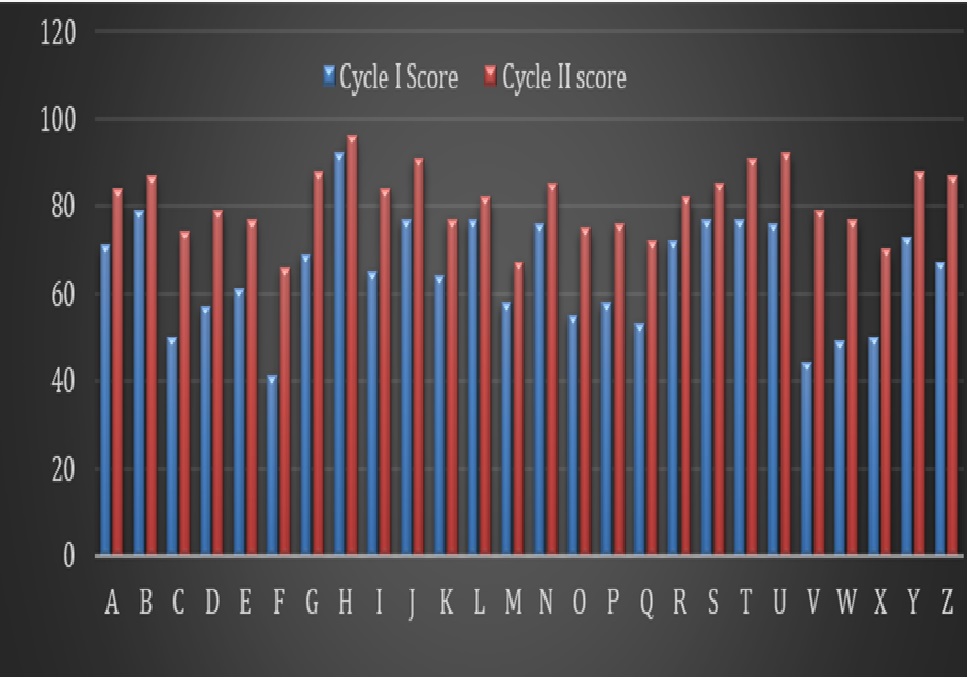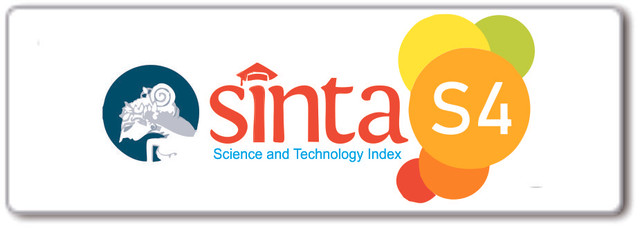Learning Creative Problem-Solving Model With Guided Inquiry Strategy to Improve Students' Concept Mastery
Abstract
Categories of learning outcomes include acceptance, response, assessment, organization, and pattern formation. Thus, the essence of learning is a change in thinking that affects behaviour. The results of interviews with teachers at SMA Kartika XIII-I Ambon show that current students have not shown an environmentally conscious attitude. Therefore, research was conducted to improve the mastery of the concept of class X students on environmental pollution material using creative problem-solving learning models with guided inquiry strategies. This study used a classroom action research method that took place in two cycles for one month. The subjects in this study were 26 students. The research data were processed descriptively on the results of cognitive, affective, and psychomotor assessments. The results showed that in cycle I there were still 65.4% of students who had not achieved mastery of concepts on environmental pollution material. Therefore, the research was continued in cycle two with the action of using the creative problem-solving learning model based on guided inquiry strategy and coupled with audio-visuals media, as well as a stimulus in the form of giving rewards to active students. It was proven that in cycle II there was an increase in students' mastery of concepts in environmental pollution material in students by 100% so that the series of class action research was no longer continued. In conclusion, the use of learning models
Downloads
References
Ardhita, T. D., Zahara, R., & Ilyas. (2019). Penerapan metode inkuiri terbimbing untuk meningkatkan kemampuan. Jurnal Pendidikan Dan Pembelajaran Ekonomi Akuntansi, 5(2), 144–152.
Arikunto, S. (2012). Penelitian Tindakan Kelas. Bumi Aksara: Jakarta.
Asmidar, A. (2019). The effect of creative problem solving model toward students learning activities and learning outcomes of science learning. 178(ICoIE 2018), 92–94. https://doi.org/10.2991/icoie-18.2019.22.
Asni, A., Wildan, W., & Hadisaputra, S. (2020). Pengaruh model pembelajaran inkuiri terbimbing terhadap hasil belajar kimia siswa materi pokok hidrokarbon. Chemistry Education Practice, 3(1), 17. https://doi.org/10.29303/cep.v3i1.1450.
Astuti, D., & Fauziah, M. (2021). Penguasaan konsep siswa dalam pendekatan interactive conceptual instruction (ICI) dengan video pembelajaran. Ibtida Jurnal Kajian Pendidikan Dasar, 1(2), 1–17. https://doi.org/https://doi.org/10.33507/ibtida.v1i2.329.
Bahrudin, J. (2020). Penerapan Model pembelajaran creatif problem solving untuk meningkatkan hasil belajar teknologi layanan jaringan materi ragam aplikasi komunikasi data. Journal of Education Action Research, 4(4), 536. https://doi.org/10.23887/jear.v4i4.28924.
Choirul Amri, & Dimas Kurniawan. (2023). Strategi Belajar & pembelajaran dalam meningkatkan keterampilan bahasa. Journal of Student Research, 1(1), 202–214. https://doi.org/10.55606/jsr.v1i1.980.
Halek, E. F., Oetpah, V., & Seran, Y. (2016). Siswa melalui model pembelajaran inkuiri. Jurnal Pendidikan: Teori, Penelitian, Dan Pengembangan, 1, 2047–2049.
Lewe, R. N. A. L., Sholikhan, & Pratiwi, H. Y. (2020). Implementasi model inkuiri terbimbing untuk meningkatkan motivasi dan prestasi belajar fisika siswa. Jurnal Terapan Sains Dan Teknologi, 2(1), 1–7.
Magdalena, I., Nurul Annisa, M., Ragin, G., & Ishaq, A. R. (2021). Analisis penggunaan teknik pre-test dan post-test pada mata pelajaran matematika dalam keberhasilan evaluasi pembelajaran di SDN Bojong 04. Jurnal Pendidikan dan Ilmu Sosial, 3(2), 150–165. https://ejournal.stitpn.ac.id/index.php/nusantara.
Malisa, S., Bakti, I., & Iriani, R. (2018). Model pembelajaran creative problem solving (CPS) Untuk meningkatkan hasil belajar dan kemampuan berpikir kreatif siswa. Vidya Karya, 33(1), 1. https://doi.org/10.20527/jvk.v33i1.5388.
Merta, L. M. (2021). Peningkatan motivasi belajar dan penguasaan konsep kimia pada topik hidrolisis garam dan larutan penyangga melalui pembelajaran inkuiri terbimbing. Jurnal Pendidikan Dan Pembelajaran Sains Indonesia (JPPSI), 4(1), 1–12. https://doi.org/10.23887/jppsi.v4i1.30048.
Pramestika, R. A., Suwignyo, H., & Utaya, S. (2020). Model pembelajaran creative problem solving pada kemampuan berpikir kreatif dan hasil belajar tematik siswa sekolah dasar. Jurnal Pendidikan: Teori, Penelitian, Dan Pengembangan, 5(3), 361. https://doi.org/10.17977/jptpp.v5i3.13263.
Putri, R. (2020). Efektifitas pembelajaran berbasis inquiry untuk meningkatkan penguasaan konsep dan kemampuan berpikir kreatif mahasiswa farmasi pada mata kuliah Anatomi Fisiologi Manusia. Jurnal Biolokus, 3(2), 298. https://doi.org/10.30821/biolokus.v3i2.754.
Ramadhan, F. A. (2021). Penggunaan Strategi Pembelajaran inkuiri terbimbing dalam pembelajaran IPA di Pendidikan Sekolah Dasar. VEKTOR: Jurnal Pendidikan IPA, 2(2), 56–66. https://doi.org/10.35719/vektor.v2i2.35.
Sarumaha, M., & Harefa, D. (2023). Model pembelajaran inquiry terbimbing terhadap hasil belajar ipa terpadu siswa. Ndrumi : Jurnal Ilmu Pendidikan dan Humaniora, 5(1), 27–36. https://doi.org/10.57094/ndrumi.v5i1.517.
Sumaryati, S.-, Muhtar, M.-, & Sururi, R. Y. (2022). Optimization of problem-solving skills through the application of creative problem-solving models assisted by accounting cards. Assets: Jurnal Akuntansi dan Pendidikan, 11(1), 78. https://doi.org/10.25273/jap.v11i1.7213.

Copyright (c) 2024 Tri Santi Kurnia

This work is licensed under a Creative Commons Attribution-NonCommercial-ShareAlike 4.0 International License.
Authors who publish with BIOEDUPAT: Pattimura Journal of Biology and Learning agree to the following terms:
- Authors retain copyright and grant the journal right of first publication with the work simultaneously licensed under a Creative Commons Attribution License (CC BY-NC-SA 4.0) that allows others to share the work with an acknowledgment of the work's authorship and initial publication in this journal.
- Authors are able to enter into separate, additional contractual arrangements for the non-exclusive distribution of the journal's published version of the work (e.g., post it to an institutional repository or publish it in a book), with an acknowledgment of its initial publication in this journal.
- Authors are permitted and encouraged to post their work online (e.g., in institutional repositories or on their website) prior to and during the submission process, as it can lead to productive exchanges, as well as earlier and greater citation of published work.








 This work is licensed under a
This work is licensed under a 